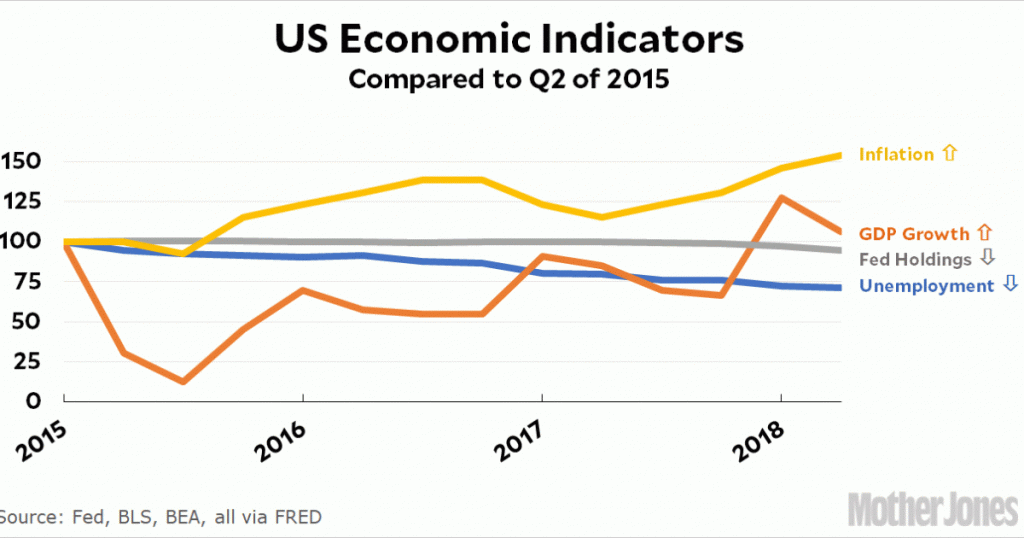The Wall Street Journal Opposes Higher Interest Rates. Why?
Looking for news you can trust?Subscribe to our free newsletters.
Here is President Trump this morning:
I hope the people over at the Fed will read today’s Wall Street Journal Editorial before they make yet another mistake. Also, don’t let the market become any more illiquid than it already is. Stop with the 50 B’s. Feel the market, don’t just go by meaningless numbers. Good luck!
— Donald J. Trump (@realDonaldTrump) December 18, 2018
Most of this is indecipherable Trumpese, but he’s right about one thing: the Wall Street Journal does indeed say that the Fed should keep interest rates low in order to spur growth:
U.S. growth may be slowing….The world economy has notably slowed, with warning signs in China and Europe in particular. The uncertainty introduced by Mr. Trump’s tariff battles have reduced trade flows and dampened investment. Housing and autos, both sensitive to interest-rate increases, are down. And a few cracks are showing in credit markets, especially high-yield bonds.
….Some of our friends fret that if the Fed stops now, it will never get back to normal. But it will surely never do so if there’s a near-term recession. The best way to normalize is to keep the expansion going as long as possible without inflation.
Oddly enough, I agree. That doesn’t happen very often, but they’re basically correct to point out that inflation is low, the world economy is a little worrisome, unemployment is low, and unwinding a decade of quantitative easing is unknown territory. So why not take a little pause and leave interest rates low? But here’s a funny thing. Back in 2015, when a Democrat was president, the mavens running the Journal’s editorial page didn’t believe that lower interest rates had anything to do with economic growth:
The great paradox of this expansion is that the monetary policy that is supposed to spur faster growth hasn’t spurred faster growth….Our guess is that the Fed gurus have been wrong because like so many in Washington and Wall Street they have overestimated the power of monetary policy to propel the real economy.
….It’s heresy to say so, but maybe after six years of zero-interest rates, and long after the financial crisis ended, the Fed should wonder if its policies haven’t become an impediment to faster growth. Maybe letting markets begin to set interest rates again would lead to a better allocation of capital and less economic uncertainty.
Note that this was written back when inflation was lower than it is now, GDP growth was lower than it is now, unemployment was higher, and the Fed was sitting on a pile of assets even bigger than today’s. These are all the things the Journal claimed to be concerned about in yesterday’s editorial, but they didn’t seem to care about any of them three years ago when every one of these indicators was worse than it is today and therefore pointed more strongly toward the Fed actively keeping interest rates low.
Because there’s only so much deceitful mush I can take, I don’t regularly read the Journal editorial page. So maybe over the past few years they’ve decided for good and honest reasons that interest rates are important to spur economic growth after all, and I just haven’t seen it. Maybe. Then again, maybe they prefer a weak economy when a Democrat is in the White House and a strong one when a Republican is president—and will then just invent whatever mush is necessary to persuade the rubes to follow along.
I dunno. That’s not a very nice thing to say, is it? But it sure seems like it’s right.




